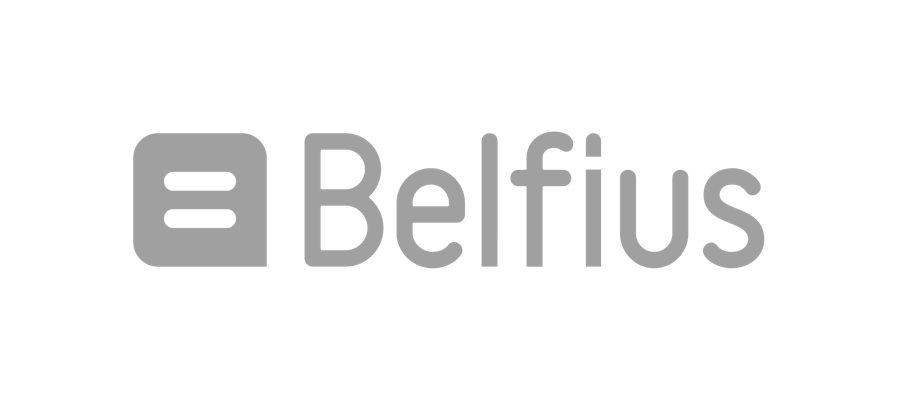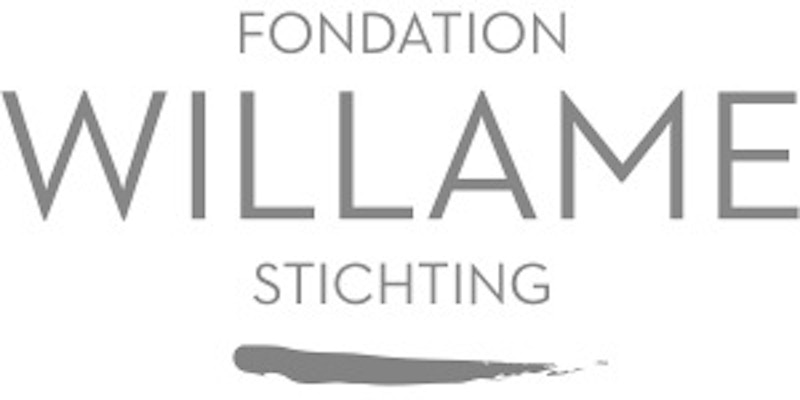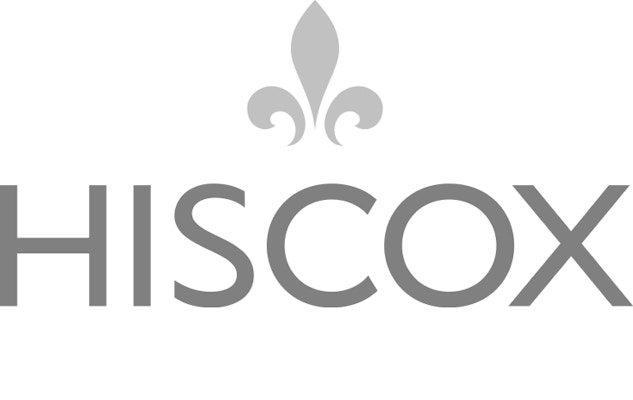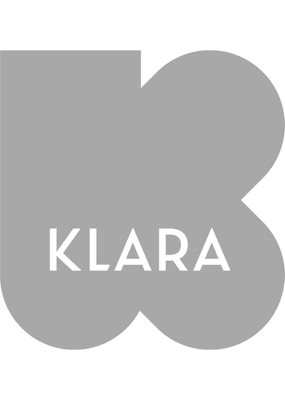Museum Regulations
AGB Kunsten en Erfgoed (Autonomous Municipal Company for Arts and Heritage)
Stedelijk Museum voor Actuele Kunst
S.M.A.K.
Article 1. Aim
These visitor regulations describe the rules applicable to every visitor to the museum building. Anyone visiting the museum is expected to know and comply with the regulations. Visitors who refuse to comply with the provisions of these regulations may be asked to leave the museum premises immediately.
Article 2. Definitions
In these regulations, the terms below have the meanings indicated next to them.
- ‘S.M.A.K.’: The organisation that manages and operates the museum complex.
- ‘Museum complex/museum building/museum’: the whole of publicly accessible spaces (built-up and unbuilt-up) that fall under the legal or management competence of the S.M.A.K. management, including, but not limited to, museum rooms, auditorium, patios, library, restaurant, meeting rooms, offices, depots, technical rooms, adjacent outdoor spaces.
- ‘Visitor’: Anyone who enters the museum complex in any way and at any time, with the exception of museum staff, external partners and other employees of S.M.A.K. who are authorised to act on behalf of S.M.A.K. This includes, but is not limited to, persons, groups and schools, organisations or companies that are present in the museum:
- visit the permanent collection and/or an exhibition
- occupy a space open to the public
- attend an activity organised by S.M.A.K. and/or an external user,
- carry out professional assignments by order of the City of Ghent/the AGB Kunsten en Erfgoed/S.M.A.K. or its representatives.
- ‘Museum collaborators’: all persons employed within S.M.A.K., including, but not limited to, the management, curators, security personnel, reception staff and other persons authorised to act on behalf of the organisation.
Article 3. Rules
- Access to the museum complex
S.M.A.K. is open to the public:
- The museum halls:
Open: on weekdays from 9.30am to 5.30pm. On weekends, school holidays and public holidays from 10am to 6pm, except nocturnes and events.
Closed: on Mondays and on 1 and 2 January, on 25 and 26 December. The museum complex may close earlier on 24 and 31 December or at other times in case of unforeseen, exceptional circumstances.
2. Other: Always by appointment and only during office hours (Monday to Friday from 9am to 5pm).
2. Access to the halls:
- To visit the museum halls, one must be in possession of a valid and visible admission ticket.
- Every visitor or person accompanying a group is always required to present an admission ticket, ticket or voucher when asked by a museum staff member. Persons entitled to a discount on the admission price must also be able to present their ticket if requested to do so by a museum staff member.
- Tickets will no longer be issued 30 minutes before closing time. Visitors will be made aware of the short time left to visit the museum.
- Clearance of the museum halls begins 15 minutes before closing time, starting with the first halls so that visitors visiting the last halls are past the closing gate in time. Security personnel request everyone to leave the building so that the museum can close its doors to the public.
3. It is prohibited:
bringing in objects that could endanger the safety and/or health of other visitors, museum staff, the works of art on display, the museum building, non-exhaustively included:
- handbags larger than 25 x 30 x 15 cm. Handbags and backpacks that are allowed on the hall are to be carried on the hand or in the front, not over the shoulders to avoid inadvertently damaging works of art.
- liquids, food.
- lamps, flash equipment, tripods, selfie sticks or other devices for taking photographs, film, and sound recordings. Unless with permission requested in advance and proof of permission at registration.
- walking sticks with iron tips. Only walking sticks with protected ends in rubber are allowed.
- natural or chemical substances in liquid or solid form.
- umbrellas and sunshades.
- capes, (rain) coats and wet jackets. Suit jackets and waistcoats are allowed. Coats may not be worn over the arm or on the shoulders. Please use the lockers or coat racks.
- natural or chemical substances in liquid or solid form.
- (domestic) animals, unless they are assistance animals for persons with disabilities
- personal folding chairs, unless they are used by persons with disabilities and they have received express permission from the museum security staff.
- large backpacks, group backpacks, action bags, shopping bags, suitcases. These are left in the lockers or storage cases.walking sticks with iron tips. Only walking sticks with protected ends in rubber are allowed.
umbrellas and sunshades.
Additional:
- Museum security personnel are authorised to judge whether or not an object can be taken during a museum visit.
- Copyists may use the materials needed for their work and do so under the supervision of authorised museum staff and according to the arrangements made (see copyists' regulations - available on request). No more stock should be brought than what is needed for one day. Formats and media to be worked with are to be agreed in advance with security and public work.
The visitor will be (temporarily) denied entry to the museum if it appears that:
- the admission ticket is no longer complete or has been tampered with
- the visitor behaves disruptively and/or is under the influence of alcohol, narcotics or similar substances
- the visitor disturbs the order or has the intention to disturb the order
- the visitor refuses to behave according to the rules in these regulations
- the visitor is in possession of legally prohibited or dangerous goods, materials or objects such as, among others: fireworks, glasses and cans, chains, firearms, striking, stabbing or punching weapons or other objects that can be used as weapons to disturb order
- the visitor is in possession of banners or pamphlets with discriminatory or provocative texts - except with the prior written consent of the management.
4. Cloakroom / Lockers
There are lockers where any museum visitor can leave personal items such as garments, luggage, umbrellas, backpacks, etc. in for the duration of a museum visit, free of charge.
- Lockers are accessible during the museum's opening hours. Before using a locker, carefully read the instructions, which are posted in the cloakroom in several languages. Anyone who is in the café after 17:30 / 18:00 will no longer have access to the entrance hall and the lockers and may reopen the locker when it opens the next day.
- All items left in the lockers by a person must be taken back by that person on the same day, before the closing time 17:30 / 18:00.
- When the museum closes, all lockers will be opened for inspection.
- Objects not taken back at the time of closing will be considered found objects.
- S.M.A.K. does not have a guarded cloakroom and is not responsible for loss or theft.
- S.M.A.K. has unguarded group lockers in the entrance hall. Here, locked suitcases are provided for group clothing and objects. The key to each suitcase is entrusted to the group supervisor, who is responsible for the contents of the suitcase and for the key.
- In case of loss, theft or damage to any object left in the lockers/vestry/cages, S.M.A.K. declines any responsibility.
5. Found and/or lost property
- Objects found by visitors in the museum complex must be handed in to a museum staff member.
- S.M.A.K. will do its utmost to trace the owner or rightful claimant of the found object and will report this to the City of Ghent within 7 days of finding it.
- If the owner or rightful claimant of a found object comes forward, they can come and collect the goods. If the rightful owner is not in a position to come, they will, if possible and on payment of the shipping costs, be sent to them. In both cases, the owner or rightful owner must identify himself and give an accurate description of the object.
- Found objects will be kept for a maximum of 6 months, except for perishable or harmful items and bicycles. If they are not collected/requested by the rightful owner, found objects are handed over to spullenhulp or, if they have no value, are destroyed and thrown away.
6. Visitor behaviour
- Visitors must behave in accordance with the applicable rules of morality and good decency. Public order must not be disturbed.
- Visitors are obliged to immediately follow the directions and instructions given by security personnel, guides or other S.M.A.K. authorised staff.
- Children/young people (up to and including 14 years of age) must be accompanied by an adult person at all times - except with the prior written consent of the management. Parents, supervisors or teachers of children/young people, groups are responsible for the behaviour of accompanied children/young people. Damage is therefore the responsibility of the accompanying adult. We explicitly ask adults not to let children explore alone because the boundary of what is touchable and what is not is not clear to children. For this, we rely on the adult accompanying them.
- If the visitor does not behave according to the instructions and orders of security personnel , the visitor may be temporarily denied access to the museum complex. In case of any unlawful occurrence, damage, destruction of a work of art, the isolation and surveillance of the suspected perpetrator(s) will be carried out until when the police arrive at the scene (as per Art 110 and Art 112 Private Security Act of 2 October 2017). For security reasons, security staff may ask visitors to open bags and packs, empty pockets, and show the contents. Inside the museum, visitors may be subjected to a person check.
Visitors are prohibited in the museum to:
- moving at an unsafe distance from the artworks (less than 60 cm).
- touching artworks, exhibits and exhibition materials.
- pointing at artworks with an object.
- leaning against walls, running, sliding, climbing, lying on benches or chairs, blocking passages or creating an obstruction by sitting on stairs.
- obstruct other visitors by, among other things, using mobile phones, music equipment or other audio sources of noise nuisance; however, the use of such equipment may be explicitly permitted by S.M.A.K. in certain rooms.
- to bring (domestic) animals, unless they are guided animals for persons with disabilities.
- to smoke.
- eating and drinking in places outside the museum restaurant or clearly demarcated areas where written permission has been given to do so.
- throwing paper or rubbish on the ground.
- carrying children on the shoulders (children should be held by hand or carried on the chest).
- apply graffiti, inscriptions, signs and the like to any place in S.M.A.K.
- deliberately and permanently blocking visitors' way or deliberately obstructing the view of exhibited objects.
- leaving personal objects unguarded, even for a short period of time.
- trading, advertising, propaganda, begging or recruiting.
7. Photo, film and sound recordings
- Visitors are prohibited from making photographic, video and film recordings using lights, flash equipment, tripods, selfie sticks or other aids, unless prior written permission has been obtained from S.M.A.K.. The same rules apply to sound recordings or any other form of media. The request for permission should be addressed to the general e-mail address of S.M.A.K. S.M.A.K. is not responsible for the publication of material without the permission obtained for it. Copyrighted work is subject to copyright laws and must be requested from the entitled parties: artist, photographer, heirs,... S.M.A.K. is not responsible for visitors' infringements of copyright laws.
- Unless stated otherwise, visitors are permitted to make sound recordings, take photographs and film for private use, but without flash, tripod, or other aids.
- Professionals (including journalists, producers of films, podcasts, etc.) must obtain prior permission to film/photograph or make other recordings inside S.M.A.K.
- Any image, sound or other recording of which the staff and the public could be the subject requires the consent of those concerned. S.M.A.K. declines any responsibility towards third parties. The publication of these recordings requires additional consent, except for personal and domestic use or a justified basis, including the request by police forces of recordings that may contribute to the investigation and prosecution of criminal offences.
- In temporary exhibitions, recordings may be prohibited at specific works of art or in the totality of the exhibition. Visitors should take note of signage.
- Installations and technical facilities of and in S.M.A.K. may not be filmed/ photographed/ scanned.
8. Safety of visitors, works of art and the building
- Visitors with special assignments such as technicians and workers must wear their badges visibly.
- Visitors shall refrain from taking any action that may endanger the safety and/or health of other visitors, museum staff or the museum complex. Any accident, illness of a person or abnormal event shall be reported immediately to the competent employee(s) of S.M.A.K., such as security personnel, a reception assistant or other museum staff.
- In the event of a fire, the utmost calm should be maintained. If an evacuation of the museum complex proves necessary, it should take place under the supervision and guidance of S.M.A.K. staff and/or the competent emergency services. In case of evacuation, the cloakrooms/ lockers/cases in the entrance hall are not accessible.
- Any lost child should be entrusted to an S.M.A.K. staff member, who will in turn escort the child to the reception desk.
- Except in special circumstances, no exhibited work shall be removed or moved in the presence of the public during the opening hours of S.M.A.K. Any visitor who witnesses a work being moved or removed should immediately inform the security personnel.
- In any unlawful or irregular event, the necessary conservative measures may be taken, in particular the closure of the entrances and control of the exits. That measure means that visitors must remain in S.M.A.K. until the police arrive on the scene.
- In the event of an excessive crowd, riots, strikes and natural circumstances that endanger the safety of people and property or in the event of exercises, it may be decided to close the museum complex or adjust opening hours. Under no circumstances may this result in claims for damages or the recovery of entrance fees paid. In the event of an exercise, this will be clearly communicated in advance at the entrances to the museum complex and via the S.M.A.K. staff.
- In case of illness or accident, it is forbidden to move the sick person or victim, give them anything to drink or administer any medicine until the emergency services are on site. If a doctor or nurse is present among the visitors and, after verification, provides assistance to the victim, this person must stay with the sick person or victim until evacuation. The aid worker is also asked to leave name and address with the reception clerk.
9. Measures towards groups
- For group visits, there is no obligation to book.
- However, it is requested that S.M.A.K. be informed of any group visit; this is in the interest of both S.M.A.K. and the group itself.
- Group visits with your own guide are possible on payment of a 'speaking fee' at the desk.
- Groups are limited in size: ± 15 people per group
- Voor groepsbezoeken aan de tentoonstellingen wordt aangeraden te reserveren langs boekjebezoek. Groepen die niet gereserveerd hebben kunnen op drukke momenten gevraagd worden op een rustiger moment op groepsbezoek te komen.
For classes
- For each group, it is compulsory to provide the group with 1 supervisor.
- Class groups consist of +- 15 pupils and minimum 1 guide. They are allowed to guide their class themselves. Only class groups with adults (+26 years old) are also charged speaking fees.
- For crowded exhibitions, additional organisational measures may be taken regarding group visits to make the exhibition visit pleasant for each visitor.
- Each group member must have a personal and visible admission ticket.
- Group visitors must not disturb other visitors in any way. Each group member must remain in the close vicinity of the group leader.
- The museum director may, in the interest of the safety and/or health of visitors and museum staff, adjust the normally applied entry and visitor conditions for groups at any time, especially when an exhibition is crowded.
10. Complaints
- S.M.A.K. shall do everything possible to ensure that visits to the museum or exhibitions and activities organised by S.M.A.K. take place in accordance with the published offer. At the reception desk, S.M.A.K. informs the public about possible inconvenience caused by the (re)arrangement of rooms or works.
- The visitor has no recourse to the following complaints and circumstances which can never lead to any obligation for compensation by the museum to the visitor:
- complaints relating to the non-visibility/presence of objects from the permanent/temporary collection of S.M.A.K.
- complaints and request for compensation relating to the partial closure of the museum complex, partial closure due to the construction or dismantling of exhibitions or as the result of exercises. The museum is free to offer a proposal for compensation according to the timing of the complaint. This is an individual favour and not a generally binding agreement.
- complaints and circumstances relating to nuisance or inconvenience caused by other visitors, e.g. noise, inappropriate behaviour, larceny or theft
- complaints and circumstances relating to nuisance or inconvenience caused by e.g. maintenance work, the (re)arrangement of rooms or renovation work
- complaints and circumstances relating to nuisance or inconvenience caused by the improper functioning of facilities in the museum complex, except in the case of force majeure due to temporary technical or temporary organisational problems
the potential visitor is not entitled to obtain a refund of the admission fee or any other compensation in the event of loss or theft of the admission ticket, either before or after entering the museum complex. If a potential visitor does not use the pre-purchased admission ticket, this is at the visitor's own expense and risk. No refund is possible for unused tickets, expired tickets, etc. This is also the case if the admission ticket is only valid for a certain period or up to a certain date. Once an admission ticket has been obtained, it cannot be exchanged. There will also be no refund of entry fees. Tickets purchased on site at S.M.A.K. cannot be exchanged or refunded, except in cases of force majeure due to temporary technical or organisational problems. The same applies to tickets purchased from one of the partners designated for the ticket sale of events taking place in the museum complex.
Visitors may communicate suggestions and complaints via the e-mail address info@smak.be.
Article 4. Implementation (and duration)
These regulations enter into force on 1 July 2024. The operation of these regulations will be reviewed annually.
The executive committee (subject to sub-delegation) may issue temporary regulations with additional rules around the health and safety of other visitors, museum employees and the museum complex.













